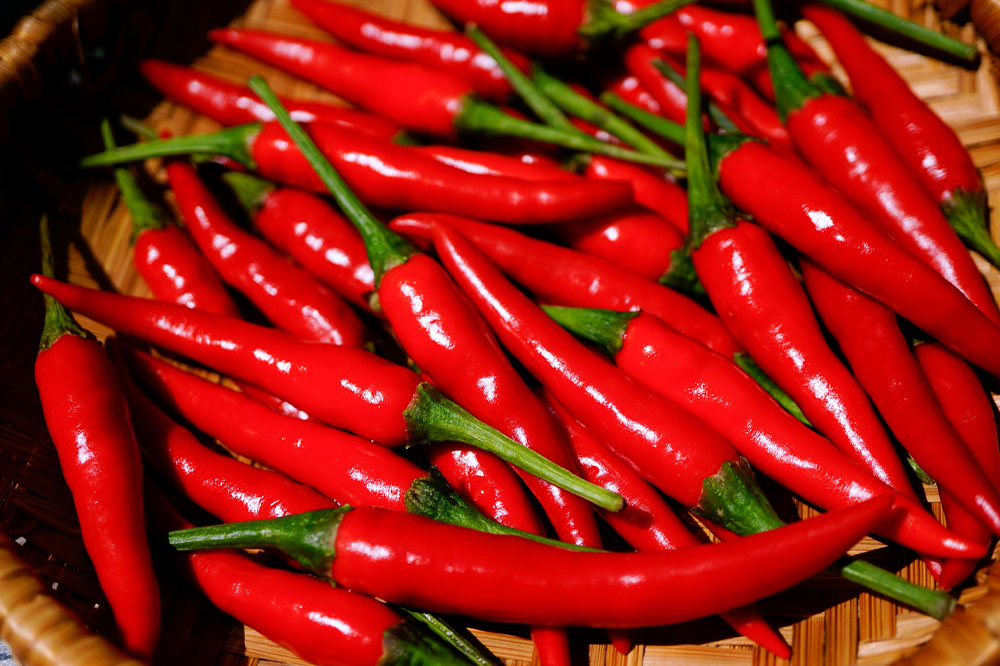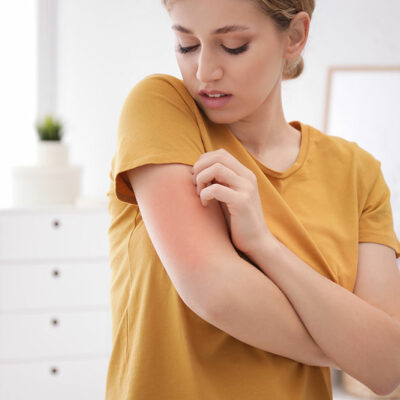
Avoid these 4 foods to manage cold sores
Cold sores, called fever blisters, are viral infections that lead to tiny, fluid-filled blisters. The blisters usually appear on and around one’s lips but can also affect one’s genitals. Cold sores are contagious and may lead to sore throat, itching, fever, or muscle aches. The infection often disappears without a scar after two to three weeks. Here is a list of foods to avoid to manage the symptoms of cold sores.
Foods to avoid for cold sores
Hot peppers and chilis
Hot sauces and spicy condiments like peppers and chilis are best avoided during cold sores outbreaks. These foods are likely to worsen the symptoms of the infection and cause a cold sore to reopen.
Nuts, poultry, and seeds
Peanuts, walnuts, hazelnuts, almonds, sunflower seeds, sesame seeds, flax seeds, and poultry contain arginine, which may trigger cold sore outbreaks. The herpes virus needs arginine to multiply. So, the duration of the blister can be cut short, and the infection can be stopped from spreading if the virus is starved of L-arginine. While these foods contain other essential nutrients, one is advised to reduce the intake of food rich in L-arginine only until the cold sore is healed.
Sugary cereals and processed foods
Processed food like pasta, pizza, meat, snacks high in calories, sugary cereals, coke, or other artificially sweetened beverages is best avoided. These foods tend to support a cold sore outbreak. Sugar, in particular, affects the ability of white blood cells to fight off infection and weakens one’s immune system. One can instead opt for naturally-occurring foods rich in antioxidants, zinc, and probiotics like berries, green leafy vegetables, eggs, and yogurt.
Soda, pineapple, oranges, and other acidic foods
An open wound caused by a ruptured blister usually develops into a crust-like scab within 24 hours. If the open wound is ignored, these scabs can get susceptible to cracking and reopening. Acidic foods and beverages like sodas, pineapple, grapefruit, oranges, limes, vinegar, pickles, or tomatoes can worsen these open wounds. They can also cause further irritation and discomfort.
Causes
Anyone can get cold sores if they come into contact with the herpes simplex virus (HSV). Those undergoing chemotherapy or with a compromised immune system, eczema, or HIV/AIDS may be at a higher risk of developing cold sores. Besides virus transfer, cold sores can also be triggered by stress, fatigue, sun exposure, or skin injury.
Treatment options
There’s no direct cure for the infection, but a healthcare professional may prescribe some oral treatments and topical creams. They may also recommend environmental changes and better food choices to manage the outbreaks. Besides, one must consult a healthcare professional before eliminating foods from their meal plans as they are better equipped to suggest ideal foods aligning with one’s allergies.
Besides foods, a healthcare professional may suggest other remedies like limiting sunlight exposure, which may trigger cold sores. For example, wearing sunscreen on the spots that erupt into cold sores will be beneficial. Similarly, one can avoid sharing utensils, personal care, stationery products, and such items with others to avoid spreading the infection. In addition, one should wash their hands more frequently and thoroughly to avoid transferring viruses onto the skin.


